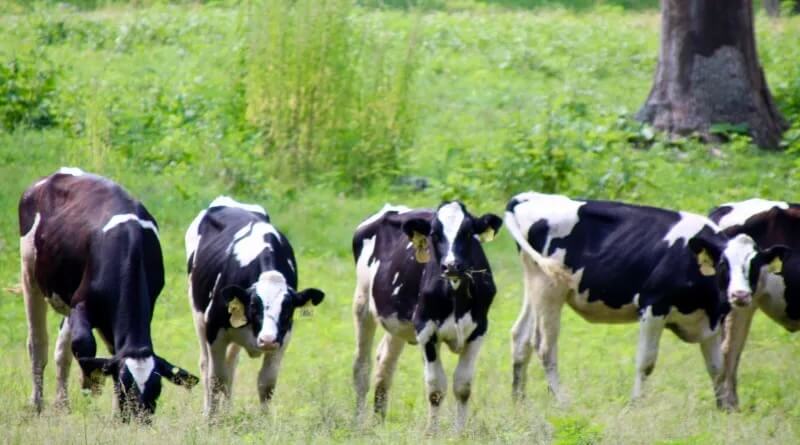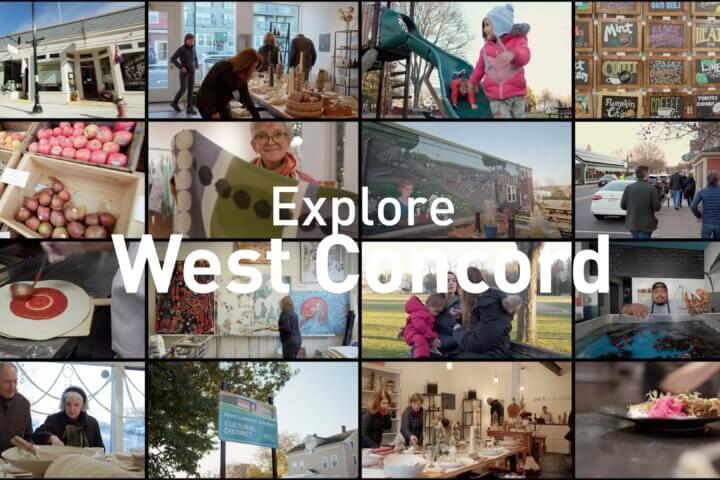The Walden Local Meat vans are tough to miss, their slogan “We raised the steaks” shouting from the side.
The fleet of trucks is the public face of a company that set about changing how people consume meat. Rather than truck it in from trans-Mississippi locations like Arkansas, Texas or Oklahoma, the meat Walden sells comes from that classic New England address: Up the road a piece.
The goal is simple: Cows, pigs, lambs and chickens are raised as intended, eating pasture grass, no hormones and drinking clean water.
After butchering, the meat is delivered to a roster of some 30,000 families sprawling from roughly Portland, Maine to Northern New Jersey. About 300 member households are in Concord.
“We open ZIP code by ZIP code,” said Vice President of Marketing Mike Leahy. “So, if you want to join in western Massachusetts, for example, we aren’t there yet.”
It turns out, 01742, Concord, was one of the early supporters of Walden and the Walden system. The name, after all, is part of Concord’s DNA.
“Our founder had a connection to the Carlisle and Concord area, and realized that there were members who would benefit from Walden,” Leahy said.
Some local businesses have served as cooperative testing shops for Walden. Nashoba Bakery in West Concord has partnered with Walden for five years. In cooperation with the local bakery, Walden customers can order Nashoba bread as part of their subscription, and Walden products are used in Nashoba products.
“It gives our families a chance to buy a truly wonderful product in Nashoba bread and increases the visibility of their products,” Leahy said.
Nashoba Brook Bakery has benefited from the partnership, according to Jaclyn Graham, the chief communications officer. The company has partnered freezer space with Walden, allowing Nashoba to expand its wholesale operations. Graham described the relationship as mutually beneficial, driven by personalities.
“Everybody is so friendly and it’s nice to do business with like-minded people,” she said.
Right now, Nashoba is in the midst of a major expansion at its West Concord shop, adding almost 5,000 square feet of work space – part of the wholesale expansion, Graham said.
Walden has also worked with Debra’s Natural Gourmet in West Concord since 2016 and worked with Concord Market as well. The company even sponsored West Concord Days recently.
According to Leahy, that cooperation has become a blueprint the company uses as it continues to grow and expand around New England.
Right now, the company partners with roughly 100 farms scattered throughout New England and upstate New York. To be a Walden-affiliated farm requires adherence to a stringent list of requirements focused on husbandry and cleanliness.
“We have a team dedicated to a robust practice of auditing farms,” Leahy said.
Environmental Impact
The impact of beef production on the environment is well-documented. As beef global beef consumption increases, the impact on climate change grows.
According to a Forbes magazine article from 2020, the meat and dairy industry is responsible for about 14 percent of total manmade greenhouse gas emissions per year, with beef by far the biggest source.
Contributions to the problem come from several sources – the animals themselves, the destruction of the forest land to create more pastureland, and transportation of the finished product.
According to Leahy, Walden is about displacing the industrial meat industry and creating a more sustainable resource for beef, chicken, lamb – the second-most polluting animal, according to Forbes – and even fish.
The adherence to environmental standards extends to other arenas as Walden tries to adhere to Concord’s bans on various plastics.
“For our deliveries, we use soft-sided coolers rather than cardboard boxes and take back prior month’s coolers to be cleaned and reused. To keep the products frozen or cold, we use dry ice in reusable bags rather than single use frozen gel packs in plastic. While these efforts are meaningful, we continuously look at more areas to reduce our waste and impact on the environment,” Leahy said in a follow up email.





